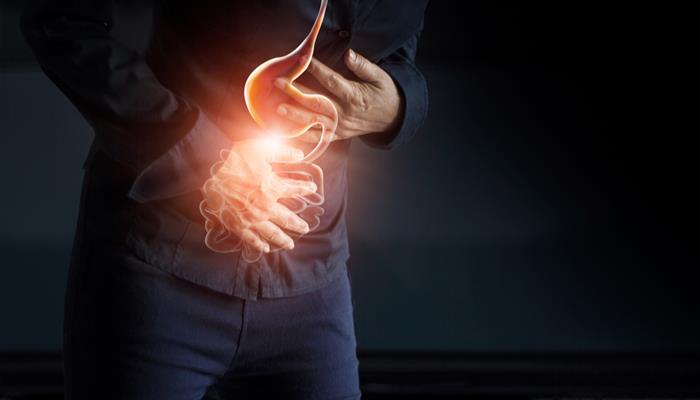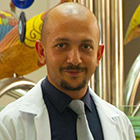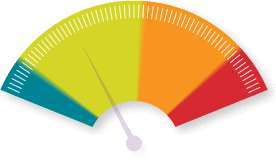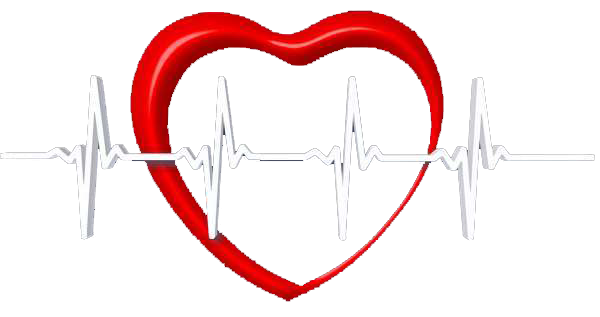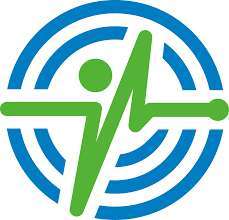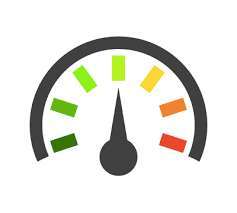The digestive system works to break down food. If part of the system is not working properly, a person may develop a digestive disorder, such as irritable bowel syndrome (IBS), celiac disease, or gallstones.
The gastrointestinal (GI) tract consists of the mouth, stomach, and intestines. Together with the liver, gallbladder, and pancreas, these organs work together to absorb nutrients and expel waste.
In this article, we provide a list of digestive disorders and discuss their symptoms, treatments, and when to contact a doctor.
What is a digestive disorder?
Digestive disorders are a group of conditions that occur when the digestive system does not function as it should. Experts split them into two categoriesTrusted Source:
- Organic GI disorders: They occur when there are structural abnormalities in the digestive system, which prevents it from working properly.
- Functional GI disorders: In these disorders, the GI tract appears to be structurally normal but still does not function well.
Some of the more common digestive disorders include:
- IBS
- small intestinal bacterial overgrowth (SIBO)
- gastroesophageal reflux disease (GERD)
- gallstones
- celiac disease
- Crohn’s disease
- ulcerative colitis (UC)
Examples of less common digestive disorders include:
- Hirschsprung’s disease
- achalasia
- Ménétrier disease
The following sections look at these conditions in more detail.
IBS
The main symptom of IBS is abdominal pain, which may occur before or after bowel movements. People can also experience diarrhea, constipation, or both. Whether a person typically experiences diarrhea or constipation more often, or both equally, determines which type of IBS they have.
Other symptoms of IBS may include:
- bloating
- white mucus in the stool
- incomplete bowel movements
A combination of factors can cause or worsen IBS symptoms. People with IBS are more likely to have experienced traumatic life events or to have a mental health condition. However, IBS can also occur after an infection or as a result of SIBO.
A variety of factors can contribute to IBS. That is why different people benefit from different approaches to managing their symptoms. They may need to:
- make dietary changes
- learn to reduce stress
- address underlying conditions
SIBO
SIBO occurs when bacteria from the large intestine migrate to the small intestine, causing symptoms such as:
- bloating
- diarrhea
- constipation
Some evidence suggests that there may be some connection between IBS and SIBO. An older 2000 study found that eliminating SIBO effectively treated IBS symptoms in 48%Trusted Source of the study participants.
Treatment for SIBO involves taking antibiotics, but it may also include medications to help with digestion and to address the underlying cause.
GERD
Acid reflux occurs when a person’s stomach contents come back up into their esophagus. If this occurs frequently, a person may have GERD, which is a long-term condition. Common symptoms include:
- heartburn
- acid reflux
- chest pain
- nausea
- pain while swallowing
Doctors are not always sure what causes GERD, but risk factors can include:
- taking certain medications, such as nonsteroidal anti-inflammatory drugs
- having obesity
- inhaling secondhand smoke
- being pregnant
- having a hiatal hernia
Treatment for GERD may include dietary changes, quitting smoking, over-the-counter (OTC) medications to manage the symptoms, or treatments that address the underlying cause.
Gallstones
The gallbladder is a small sac that stores bile, which the body uses during digestion. Gallstones are small stones that form in the gallbladder.
In most cases, a person may not know that they have gallstones, as they usually do not cause any symptoms. However, people may experience symptoms if the gallstones form in front of an opening in the gallbladder.
Symptoms may include:
- persistent pain below the ribs, on the right-hand side of the body
- jaundice
- a high temperature
- nausea
- vomiting
- sweating
Treatment for gallstones may include surgical removal of the gallbladder or a procedure whereby a medical professional will remove gallstones from the bile duct.
Celiac Disease
Celiac disease is an autoimmune disease that causes the body to attack the intestinal lining if a person eats foods containing gluten. Unlike gluten intolerance, celiac disease is a serious condition that can cause damage to the intestines if left untreated.
The symptoms of celiac disease can include:
- long-term diarrhea
- constipation
- stools that are pale, smellier than usual, and float
- abdominal pain
- bloating
- gas
- nausea
- vomiting
Over time, untreated celiac disease can lead to complications, such as:
- malnutrition
- bone softening
- nervous system problems
- problems related to reproduction
Crohn's disease
Crohn’s disease is a type of inflammatory bowel disease (IBD). It causes chronic inflammation in the GI tract, most often in the small intestine.
Some common symptoms of Crohn’s disease include:
- chronic diarrhea
- unexplained weight loss
- stomach pain
- bloody stools
- fatigue
Crohn’s disease may be due to an autoimmune reaction to certain bacteria in the digestive tract. However, genetic and environmental factors can also play a role.
People with Crohn’s disease often require medications to reduce the inflammation. Some people may also require bowel rests to help the intestines heal, or surgery.
UC
UC is a type of IBD that causes inflammation in the rectum and large intestine. The inflammation can also spread to other parts of the intestine over time.
Some symptoms of UC may include:
- long-term diarrhea
- unexplained weight loss
- tiredness
- abdominal pain
As with other types of IBD, what triggers UC could be a combination of an autoimmune response, genetics, and environmental causes.
Treatment may involve medications to manage inflammation and reduce symptoms, dietary changes, or surgery.
Less common digestive disorders
Hirschsprung’s disease
Hirschsprung’s disease is a rare condition that people are born with. It involves the body’s inability to reflexively open the internal anal sphincter.
Symptoms in newborns may include:
- not passing their first bowel movement within 48 hours of birth
- constipation
- vomiting
- swollen stomach
Symptoms occurring later in life may include:
- lack of appetite
- diarrhea
- small, watery stools
The usual treatment for Hirschsprung’s disease is surgery.
Achalasia
Achalasia is a rare disorder that typically affects adults aged 25–60 years. It occurs when the esophagus loses the ability to move food toward the stomach, and the valve at the end may fail to open.
Symptoms may include:
- the sensation while eating that food is not “going down”
- heartburn
- regurgitation of food
- coughing or choking at night
Treatment may involve medication or surgery.
Ménétrier disease
Ménétrier disease occurs when the mucus membrane that lines the stomach overgrows and leads to large gastric folds. Some symptoms that people may experience are:
- pain in the upper middle region of the stomach
- nausea
- vomiting
- diarrhea
However, some people have no symptoms. Doctors do not know the exact cause of Ménétrier disease.
Treatment may involve medications or potentially a gastrectomy, which is the surgical removal of part or all of the stomach.
Diagnosis
Doctors may begin trying to diagnose a digestive disorder by performing a physical examination and asking questions about a person’s symptoms and medical history. For example, a doctor may ask about:
- medications a person takes
- their diet and lifestyle
- whether any relatives have digestive diseases
They may then proceed to order tests, such as:
- blood tests, which may help detect celiac disease, inflammation, or signs of infection
- stool tests, which can also detect inflammation and examine the bacteria in a person’s gut
- endoscopy, which involves a doctor inserting a tiny camera into the esophagus to examine the upper GI tract
- colonoscopy, during which a doctor inserts a tiny camera into the rectum to examine the lower GI tract
- lactulose breath tests, which doctors use to diagnose SIBO
- medical imaging, such as CT scans, ultrasounds, or X-rays
A person may need to see different medical professionals while getting a diagnosis. For example, they may consult their primary care physician, gastroenterologists, or dietitians, among others.
When to contact a doctor
If a person has experienced digestive symptoms of any kind persistently for more than a few weeks, they should contact their doctor. While OTC medications may help manage the symptoms, some digestive conditions require treatment from a doctor.
People should also speak with a healthcare professional as soon as they can if they notice any of the following symptoms, which can be indications of colon cancer:
- blood in the stool or on toilet paper
- a continuous change in bowel habits, such as more frequent or looser bowel movements
- abdominal pain or discomfort that occurs after meals
- unexplained weight loss
Summary
There are many digestive disorders, ranging from common to rare. Many involve similar symptoms, which can make them difficult to diagnose.
If people notice that they have symptoms that are not normal for them, they should seek medical advice to rule out serious conditions, obtain a diagnosis, and begin to undergo treatment.
Referance: https://www.medicalnewstoday.com

